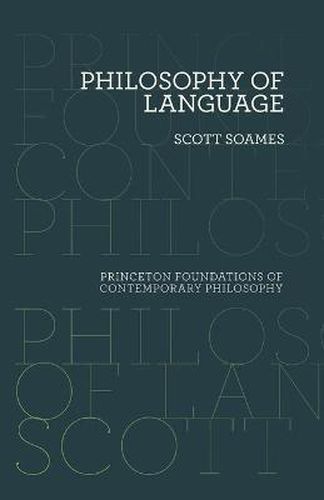Readings Newsletter
Become a Readings Member to make your shopping experience even easier.
Sign in or sign up for free!
You’re not far away from qualifying for FREE standard shipping within Australia
You’ve qualified for FREE standard shipping within Australia
The cart is loading…






In this book one of the world’s foremost philosophers of language presents his unifying vision of the field–its principal achievements, its most pressing current questions, and its most promising future directions. In addition to explaining the progress philosophers have made toward creating a theoretical framework for the study of language, Scott Soames investigates foundational concepts–such as truth, reference, and meaning–that are central to the philosophy of language and important to philosophy as a whole. The first part of the book describes how philosophers from Frege, Russell, Tarski, and Carnap to Kripke, Kaplan, and Montague developed precise techniques for understanding the languages of logic and mathematics, and how these techniques have been refined and extended to the study of natural human languages. The book then builds on this account, exploring new thinking about propositions, possibility, and the relationship between meaning, assertion, and other aspects of language use.
An invaluable overview of the philosophy of language by one of its most important practitioners, this book will be essential reading for all serious students of philosophy.
$9.00 standard shipping within Australia
FREE standard shipping within Australia for orders over $100.00
Express & International shipping calculated at checkout
In this book one of the world’s foremost philosophers of language presents his unifying vision of the field–its principal achievements, its most pressing current questions, and its most promising future directions. In addition to explaining the progress philosophers have made toward creating a theoretical framework for the study of language, Scott Soames investigates foundational concepts–such as truth, reference, and meaning–that are central to the philosophy of language and important to philosophy as a whole. The first part of the book describes how philosophers from Frege, Russell, Tarski, and Carnap to Kripke, Kaplan, and Montague developed precise techniques for understanding the languages of logic and mathematics, and how these techniques have been refined and extended to the study of natural human languages. The book then builds on this account, exploring new thinking about propositions, possibility, and the relationship between meaning, assertion, and other aspects of language use.
An invaluable overview of the philosophy of language by one of its most important practitioners, this book will be essential reading for all serious students of philosophy.